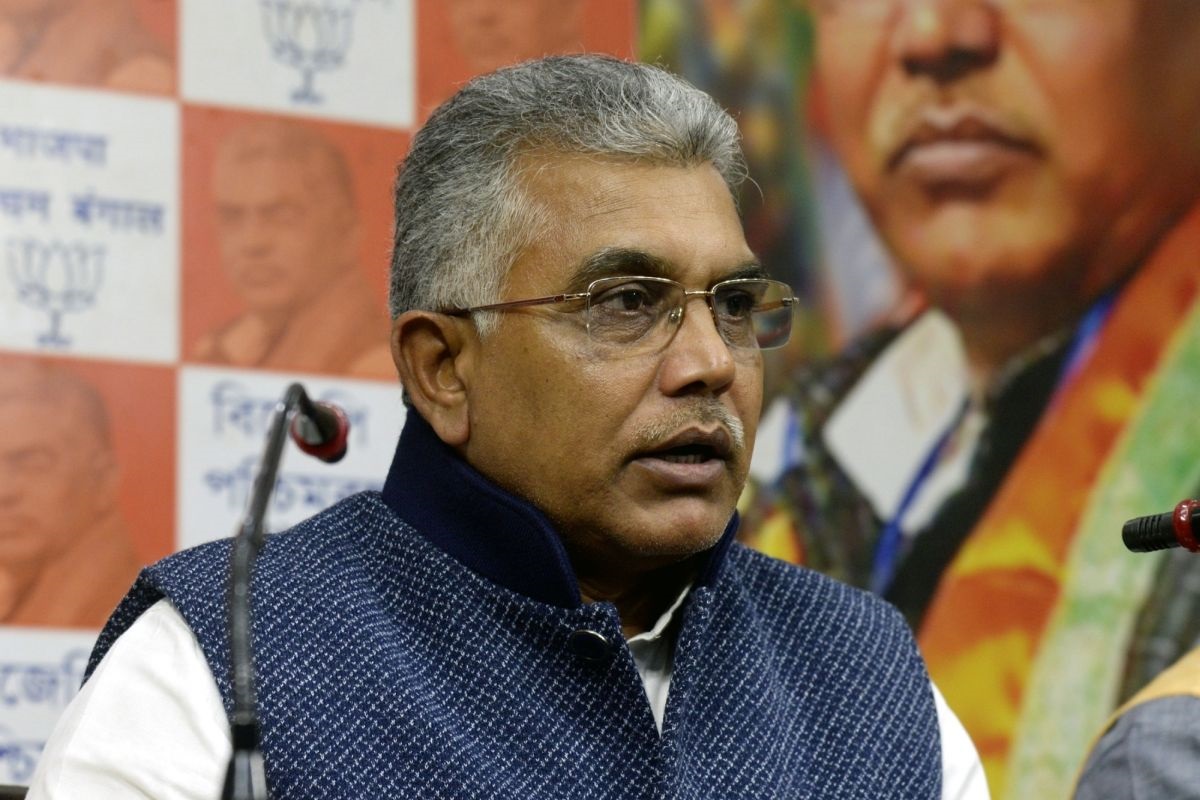Pakistan-occupied Kashmir is ours and we will take it back: Amit Shah in West Bengal
Shah said that despite hurdles from the Opposition, Modi removed article 370 and integrated Kashmir into the rest of India.
BJP state president Dilip Ghosh’s speech in Haldia a couple of days ago in which he threatened, at the very least, a trip to the hospital for the Chief Minister’s supporters “if they didn’t mend their ways” was only the latest in a series of provocative statements which emerge periodically from his mouth.

West Bengal BJP President Dilip Ghosh. (File Photo: IANS)
Who started the fire in West Bengal? Was it the corrupt, rent-seeking Congress? The violent and intimidatory Left Front? A combination of the two with enigma variations which is the Trinamool Congress? Or should we lay the blame at the door of the latest entrant, the BJP, which seems to feel that the sins of others excuse their own?
BJP state president Dilip Ghosh’s speech in Haldia a couple of days ago in which he threatened, at the very least, a trip to the hospital for the Chief Minister’s supporters “if they didn’t mend their ways” was only the latest in a series of provocative statements which emerge periodically from his mouth.
But Mr. Ghosh’s limited vocabulary and unlimited virulence are hardly the issue. The fact that an image-conscious ~ its critics would say hypersensitive ~ BJP under Narendra Modi in other parts of the country has made its peace with its leading man in Bengal sounding like a lout tells us something important about the state of play in these parts.
Advertisement
The lumpenisation of the state is so complete that all political parties bar none use the same language, issue similar threats, and more often than not act upon them believing that is the way to win. The lament among many old-timers is that each bunch of politicians is as bad as the other. But it’s about time someone pointed out to them that they too are in large measure responsible for the affairs in Bengal.
The bhadralok have spent the past few decades ensuring inter-generational entitlement for their kin and when that ceased to be a viable option within the boundaries of the state, enabling their children to get out of Bengal. When, due to accidents of history, a societal elite emerges with the levers of power within its grasp to effect systemic change but lets the opportunity slip, the resultant political chaos is a forgone conclusion.
That is what residents of the state are living through today. Mr. Ghosh is only the consequence, not the cause of the lumpen political narrative that rules West Bengal. And for that, the state’s social-political elite must carry the blame.
Many stood idly by when it was still possible to prevent the flight of capital – both financial and human – from Bengal. Some looked the other way as the haemorrhaging of the state’s manufacturing base continued apace. Then there were those who watched silently the destruction of its education system. Ditto, those complicit in the unionisation of the workforce from top to bottom.
Ironically, the unthinking policies which brought about these disasters gathered mass support primarily because an allegedly enlightened elite failed – or perhaps didn’t even try – to address rampant inequality. Decency and maturity having thus been sucked out of the political narrative, and without one notable having attempted to arrest the slide in recent memory, next year’s election promises to be another macabre dance of what is euphemistically termed a democratic process.
Advertisement